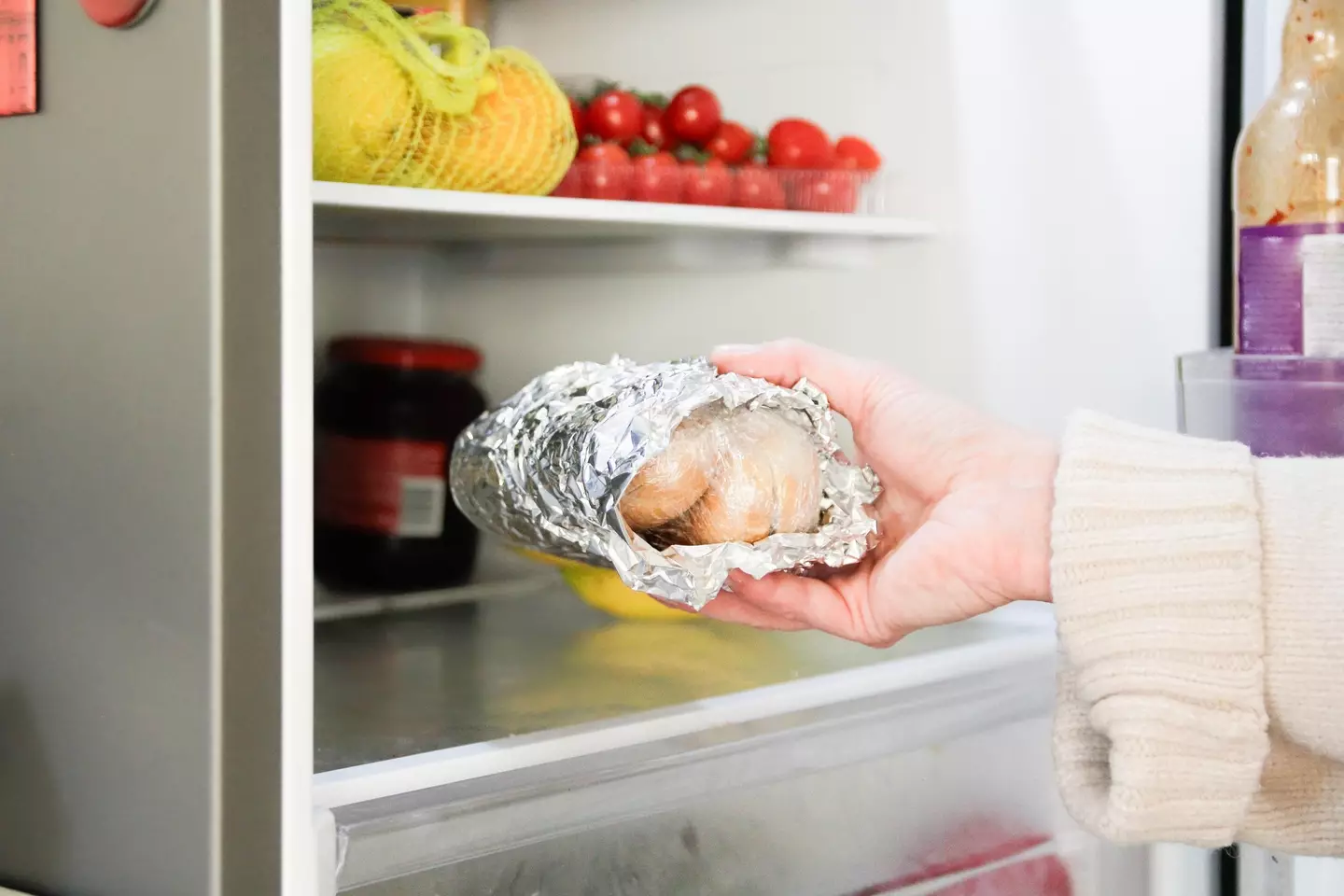
You’ve likely never thought twice about wrapping your leftovers up in kitchen foil, but an expert has claimed that there may be a good reason not to do it.
Kitchen foil is recyclable, easy to mould, and keeps the air at bay whilst storing leftover grub, so it would seem like a no-brainer to use it whenever you’re bunging leftovers in the fridge.
However, food scientists have said that the foil isn’t completely air-tight, meaning bacteria can still develop on foods that have been wrapped in the stuff.

Advert
Dr Zachary Cartwright told Southern Living: "Aluminium foil cannot create a completely airtight seal because it’s not inherently adhesive."
He said that sealable containers and plastic bags are better options as they prevent any fresh oxygen from getting to the food, ensuring it’s safe to reheat when the time comes.
Without this seal, leftovers can spoil and potentially cause life-threatening food poisoning.
Food poisoning symptoms include vomiting, diarrhoea, stomach cramps and fevers. In some cases, the symptoms can prove potentially fatal.
Concerns around plastic use, namely from an environmental perspective, have led many manufacturers to ditch plastic lids from products.
If you’ve had a pot of houmous or a big tub of yogurt lately, you’ll already have encountered this inconvenient phenomenon. Film lids have replaced solid plastic ones in many cases, meaning the pots aren’t resealable in the same way.
As they aren’t airtight, they increase the likelihood of bacteria growing in the opened containers, even if they’re refrigerated.
Primrose Freestone, a senior lecturer in clinical microbiology at the University of Leicester, also noted that our fridges may need to be slightly colder, as the typical fridge temperature of between 3 and 5 degrees centigrade is insufficient for slowing down microbe growth.
In many cases, she said, a freezer is the safer option.
Some studies have shown that, on average, we aren’t making the most of our fridge space, with households wasting around £1,000 per year on food that’s spoiled from improper storage and energy inefficiency.
.jpg)
If you take time to tactically organise your fridge and freezer, you could increase safety for both your body and wallet.
Freezing items where possible is a good idea, as is stacking your fridge properly.
Meats should be kept on the bottom shelf to prevent any leakage dropping down to food stored underneath.
Conversely, dairy items are best stored at the top.
Along with keeping food fresh for longer, sensible stacking can also make your refrigerator run more efficiently, saving on energy usage.
Topics: UK Food
